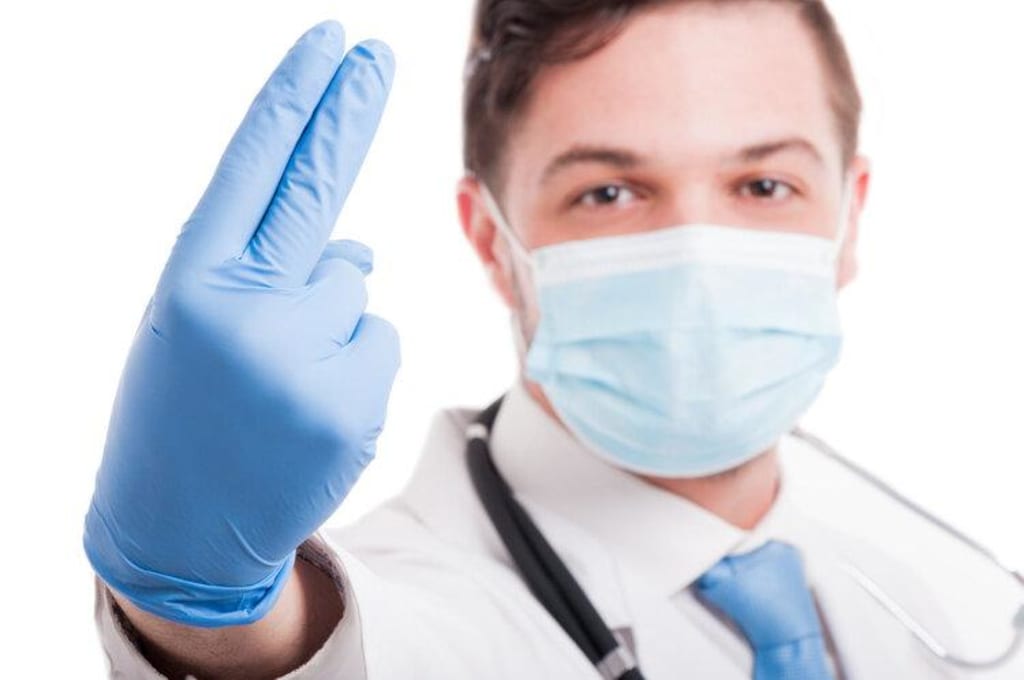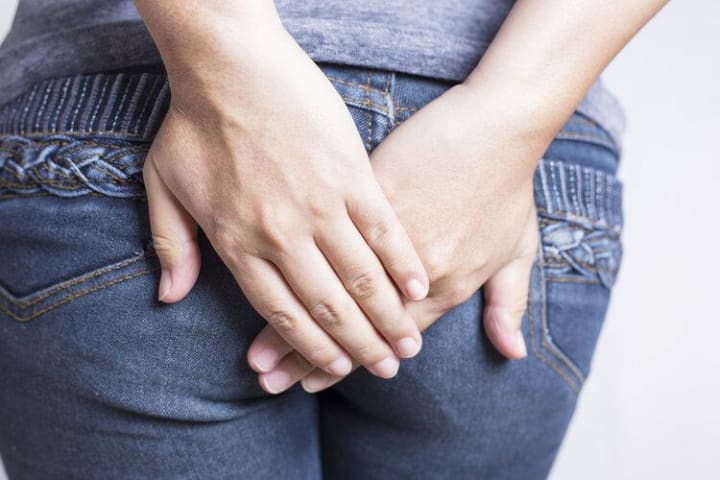
Mr. Wu is 49 years old and has had a history of hemorrhoids for about ten years, and his anus is itchy and painful when he gets an attack. In recent months, Mr. Wu's anus is always itchy and uncomfortable, in his words, "as if worms are crawling around". I wanted to put up with it, but I didn't expect it to get better, the stool became flat, and the whole person also lost a lot of weight.
He went to the hospital for examination, and the doctor first felt the swelling in the rectum through an anal finger examination, and finally confirmed the diagnosis of rectal cancer through biopsy by colonoscopy, because the tumor is very close to the anus, so the doctor recommended removing the anus.
Is it just an itchy anus? How did rectal cancer come out? Mr. Wu could not accept this cruel result. Many people have experienced anal itching in daily life, so I hope we must pay attention to it.
I. What are the causes of anal itching?
Anal itching experience many people have experienced, because the site is more sensitive, in public places can not scratch, and ketchup is very embarrassing.
1, do not pay attention to hygiene
For people who are more hairy or obese around the anus, defecation is easy to stain the anal neighborhood, if you do not pay attention to cleaning, it is easy to breed bacteria, causing anal itching.
2, sphincter muscle relaxation
The elderly group due to the anal sphincter or contraction reduced, which can lead to the anus can not be closed, intestinal mucosa secretion of intestinal fluid easily from the anal leakage, the anal environment being humid, and breeding bacteria causing itching.

3、Parasites and fungal infections
Parasites and fungal infection is also important cause of anal itching, especially in children and adults who do not pay attention to separate clothing cleaning, it is easy to cause cross-infection.
4、Dermatological diseases of the anal area
Anal eczema, sweat glands, and other skin diseases are common in the anal area and will stimulate the skin near the anus, thus causing itching in the affected area.
5、Anal diseases
Anal diseases including hemorrhoids, anal inflammation, etc., can also lead to anal itching. Anal itching can first be considered hemorrhoids, which are caused by abnormal stools, malnutrition, spicy diet and sedentary, etc. If hemorrhoids are allowed to develop to a certain stage, they will stimulate the anus and lead to anal itching.
6. Rectal cancer
An itchy anus may also be a feature of anal malignancy. Investigation and research found that when anal malignant cells produce histamine, proteolytic enzymes, and other living activities, they will stimulate the nerve endings of the perianal skin and make patients feel unbearably itchy. When blood in stool and anal itching is found, it is better to consult a doctor as soon as possible.
Rectal cancer also has these symptoms, don't be careless
Rectal cancer is one of the common tumors in the gastrointestinal tract, with a very high incidence and no obvious symptoms in the early stage. When you find these 3 physical changes, you should be alert to the possibility of early rectal cancer.
1、Diarrhea and constipation
Having a foreign body growing in the intestine can cause stress symptoms in the intestine. With the development of a tumor, the intestine will also perceive it, which can trigger its alternation of constipation or diarrhea and a feeling of downward movement in the anus. In addition, the tumor stimulates the intestine and makes the intestine misunderstand that there is excrement, it will fire signals to the brain, and the patient often has the feeling of incomplete defecation.
2、Blood in stool
Blood in stool is an obvious manifestation in the early stage. When the tumor grows and breaks through the tissues in the rectum, causing dead ulcers, it will cause bleeding, and rectal cancer blood in stool is mostly dark red, while hemorrhoid blood in stool is mostly bright red.
3、Stenosis of the intestinal cavity
The rectal tumor will narrow the intestinal pathway, and when the excrement passes, it will be "compressed", and the form will become thinner and thinner, and at the same time, it may be accompanied by blood and mucus outflow.
Why do we need to remove the anus for rectal cancer? What will happen if it is removed?
Not all rectal cancers need to remove the anus, but for low rectal cancers that are close to the anus, if you want to remove the tumor completely, you need to consider removing the anus.
Usually, after the anus is removed, it has to be rerouted to ensure pooping, so making an artificial anus is inevitable. After receiving a stoma, many patients are "hanging" a bag of feces every day, which not only makes them look "different", but also traumatizes them psychologically. Worry that people around them will smell their fecal odor, bringing great social distress to patients.
A shy examination can help you find out rectal cancer
According to the national data in 2020, there are 520,000 new cases of colorectal cancer in China, and the incidence rate ranks second among all kinds of tumors, which seriously threatens the health of our nationals.
Rectal cancer is also a relatively easy disease to detect, which can be touched by "one finger magic" - anal finger examination. If a lump is found, the possibility of rectal cancer should be considered and further examination is needed. Therefore, anal finger examination seems to be simple, but it has great significance.
It is understood that the price of an anal finger examination is only a few tens of dollars, and the process is painless, which only takes a minute or two to uncover 70% of rectal cancer.
It is not just for rectal cancer, the finger touch can also help men check prostate problems, early detection of prostate hypertrophy, prostate cancer, etc. For women, the finger test can touch the uterus, and timely detection of pelvic inflammation, uterine tumors, pelvic abscesses, and other diseases, can be said to be a very "cost-effective" examination.
Although anal itching is a relatively minor symptom, the reason behind it may be related to anal and intestinal diseases, and if the patient does not pay attention and scratches the affected area, it is likely to cause infection, which can lead to other diseases. Therefore, when there is prolonged itching and no relief is seen, one should be alert to the fact that it is an intestinal disease and treat it early to prevent further development of the condition.






Comments
There are no comments for this story
Be the first to respond and start the conversation.